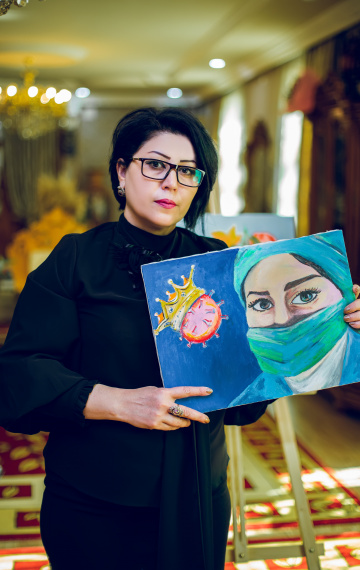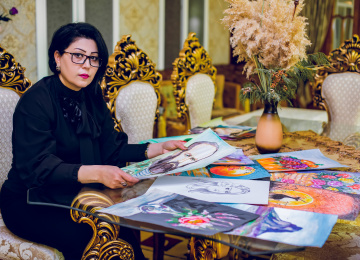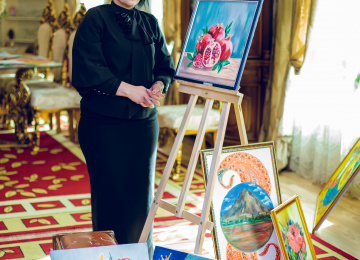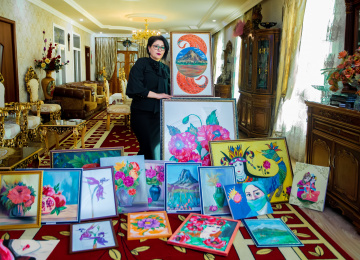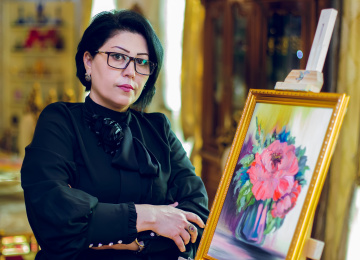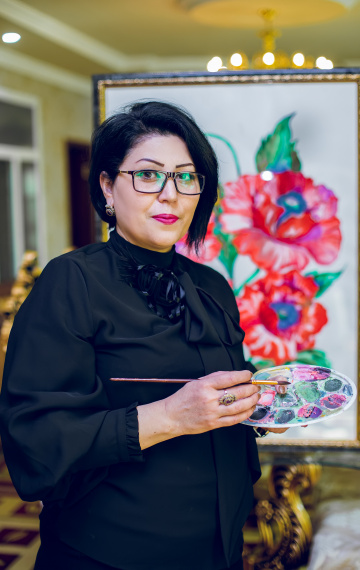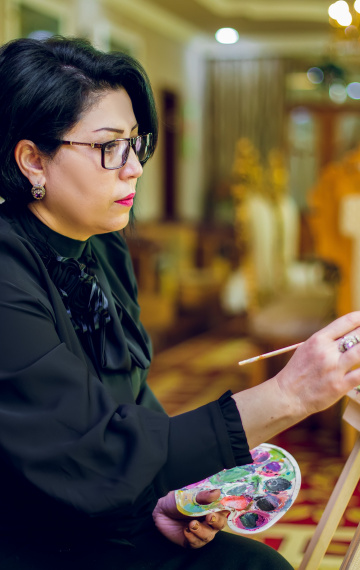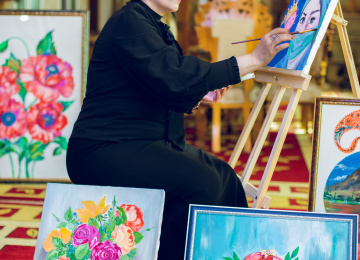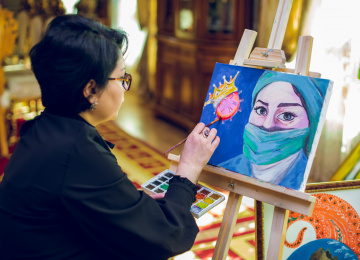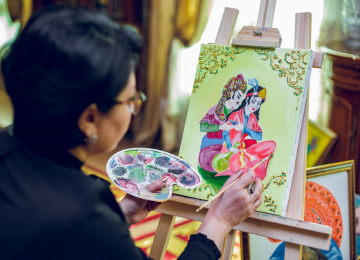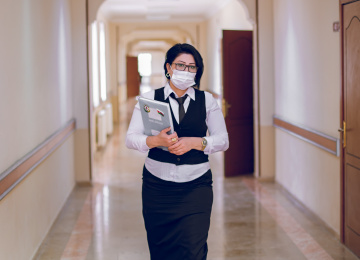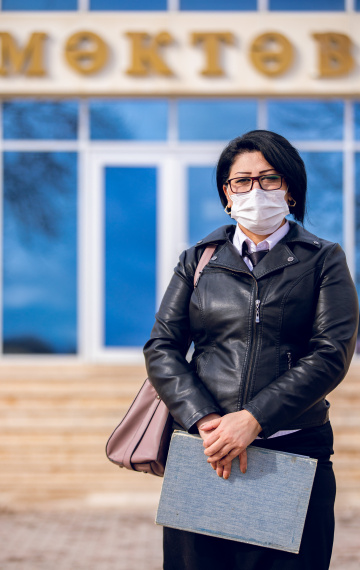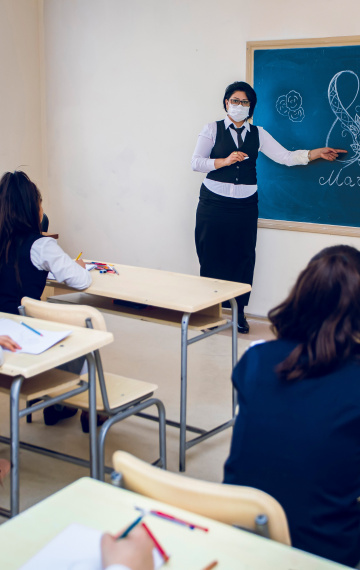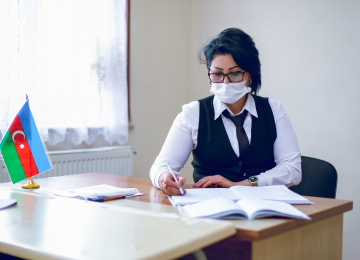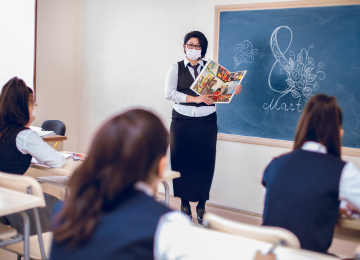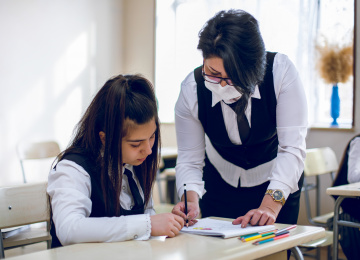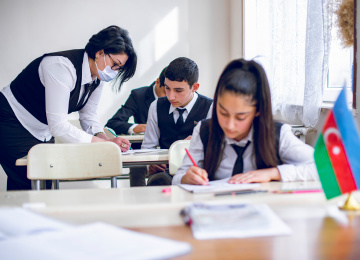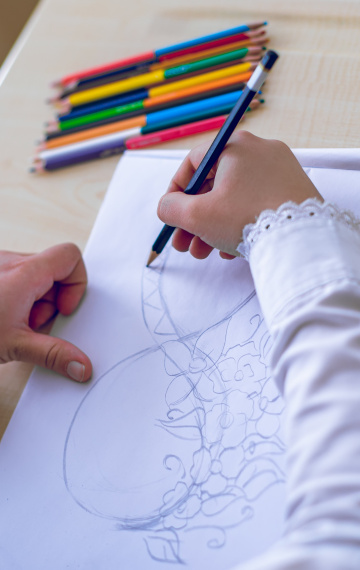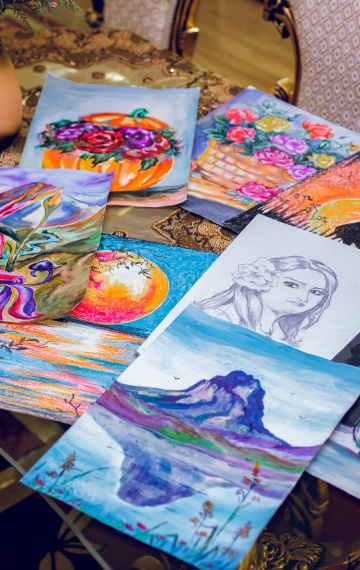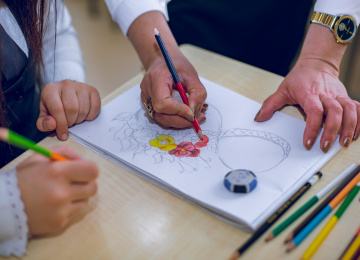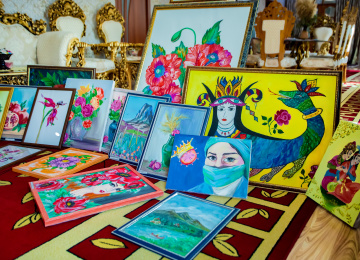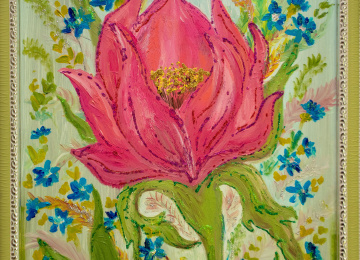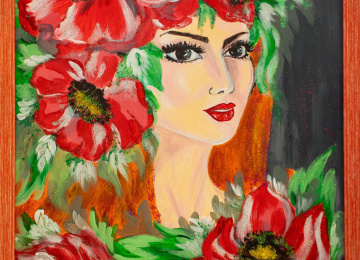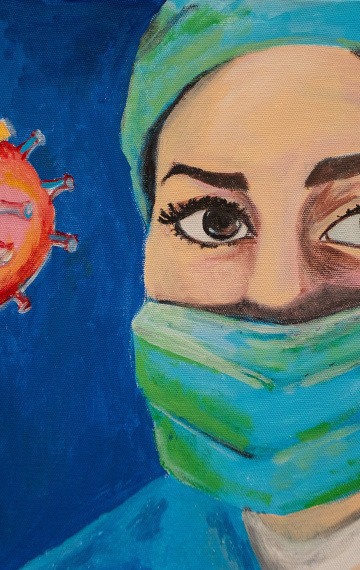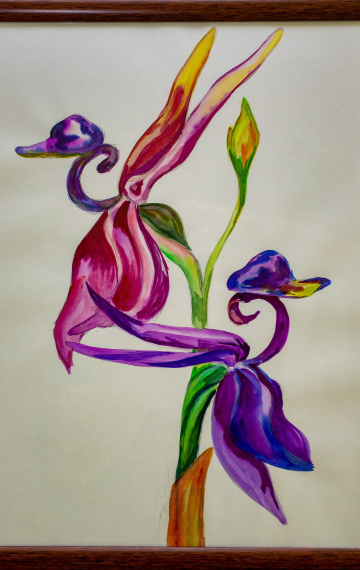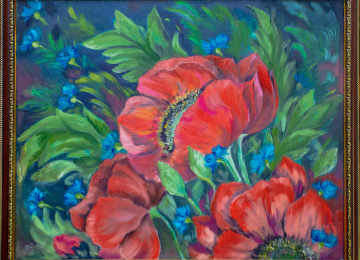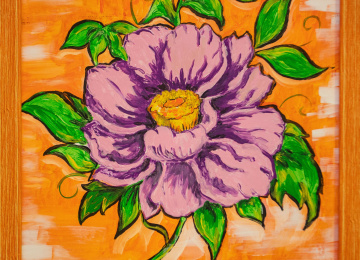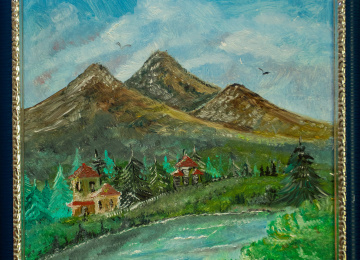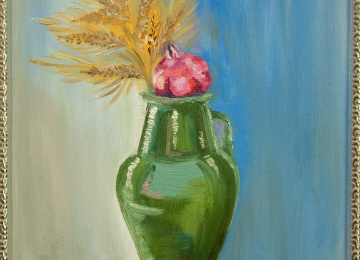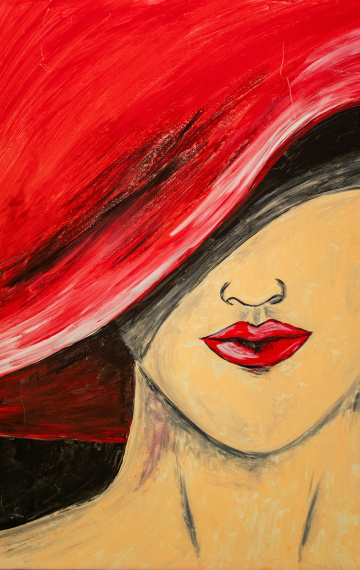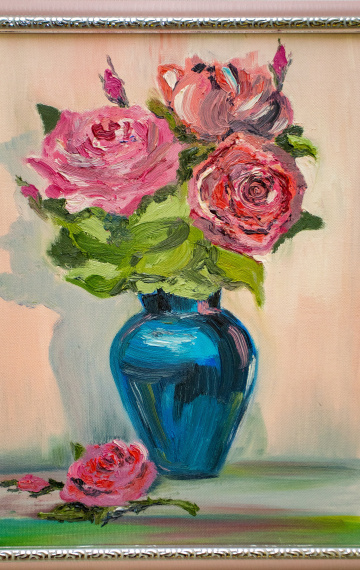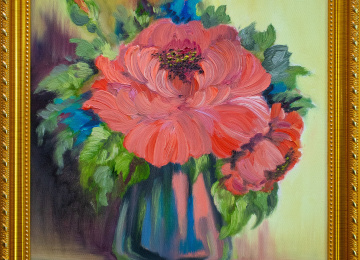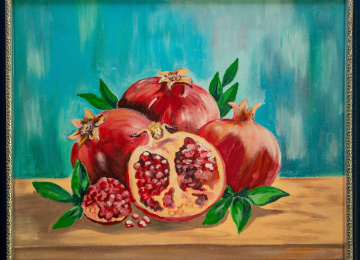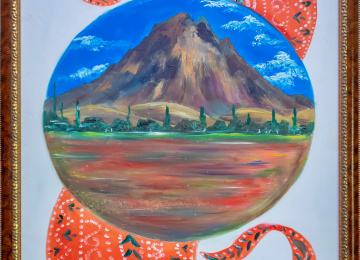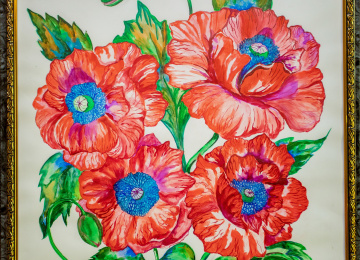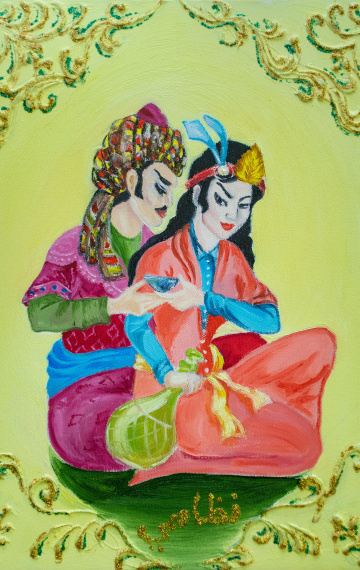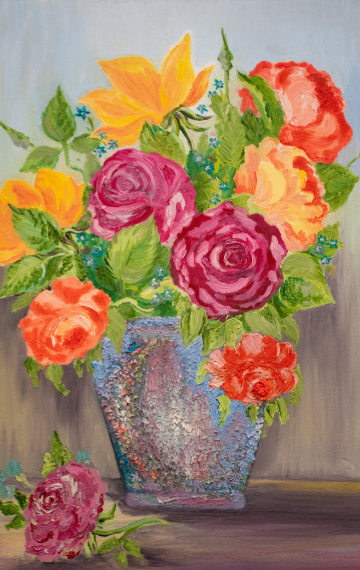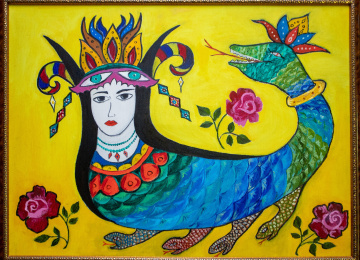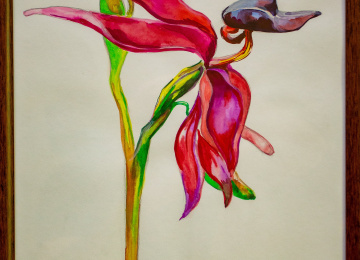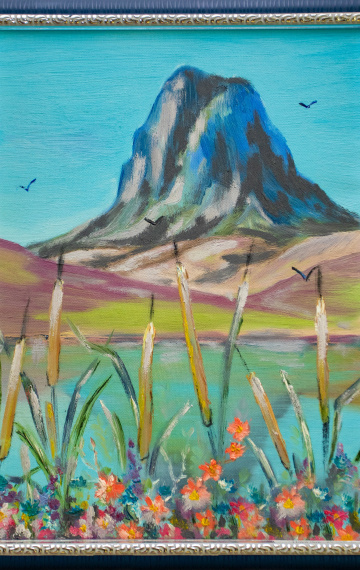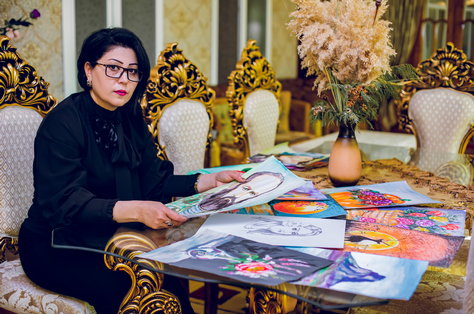
Yagut Akhmedova, from the village of Zeynaddin in the Nakhchivan Autonomous Republic, has a talent for drawing since childhood. When she was in school, it took her only four years instead of the usual six to complete a course in drawing, and she graduated with honours.
After school, she dreamed of continuing her education in the field of art and painting. But life had other plans.
In the 1980s, the Academy of Arts in Azerbaijan existed only in its capital, Baku, 500km from Yagut’s home. Although her parents were not opposed to their daughter’s interest in art, they did not dare to let their daughter go to study alone so far from home.
Yagut had to choose from those faculties that provided distance learning. The choice fell on the Faculty of Law. Soon, she got used to the new field of study, and even began to teach after graduating from university.
“I said goodbye to creativity for 25 years. It was as if I was deeply offended at it – never again had I taken a pencil in my hands during all these years. But my heart was always there. There is no artist in Azerbaijan with whose work I am not familiar. I confess that I am simply in love with painting,” says Yagut Akhmedova.
In 2014, Yagut, whose soul was seething with unrealised creative energy, decided to test herself and participated in the entrance exam to the Academy of Arts. The young woman wanted to prove to herself that she was capable of doing this.
“I successfully passed the entrance exams, including the talent examination. It inspired me, gave me strength. It means that I still remember something and am able to do this, after as much as 25 years,” says Yagut. At the time, she was 42 years old.
At that moment, fate brought Yagut Akhmedova together with a representative of the Union of Artists of the Nakhchivan Autonomous Republic. Through this institution, she participated in the exhibitions held in the region by the state. Soon she joined a project, which is being implemented by the Azerbaijan Microfinance Association (AMFA), with funding from the European Union and the United Nations Development Program (UNDP).
The project focused on economic support for women in Nakhchivan affected by the COVID-19 pandemic, including broader programmes to enhance the role of civil society on gender equality issues. The project provides small amounts of money to open or expand women’s own micro-businesses, depending on their abilities and talents.
Yagut Akhmedova won a grant of 300 manats (€150), and was able to purchase all the necessary items for painting with these funds. As part of previous AMFA projects in Nakhchivan, she also underwent a training on financial literacy, which taught her how to plan and start her own small business, how to do accounting, work management and how to approach her business professionally.
“Before the project, I could bring one or two paintings to an exhibition. Now I can offer ten. I learned how to work: not only for creative self-realisation, but to treat it as business,” says Yagut.
“For example, I used to take part in exhibitions just for the sake of participation. I really wanted people to see my work, but I deliberately set the prices for the paintings very high so that no one would buy them. They are all so dear to me,” she says, laughing. “Now I set prices according to demand, and while creating paintings I also focus on the taste of buyers.”
According to Yagut, in her region, people are eager to buy flowers for their homes. She herself loves to paint flowers, so she has a lot of flower compositions in her collection.
However, she also follows the current trends. For example, last summer, at the peak of the COVID-19 pandemic, Yagut created a painting dedicated to this global problem. The picture shows a young woman wearing a medical mask, with an image of a coronavirus with a crown in the background.
“This woman is a doctor. Her eyes are full of concern of what is happening now and the future,” explains the painter. “But I tried to portray the coronavirus itself as not so frightening, which is why it has such a funny, cheerful crown. For the background I chose blue as the colour of hope. My message to the world is that everything will be fine, we can handle it!"
According to Yagut, she understood that this picture was not for sale. After all, no one wants to complete their home decor with an object that reminds them of a problem which made them so tired over the past year. Nevertheless, she felt that she wanted to reflect this theme in her work.
Another interesting direction in the works of Yagut Akhmedova was the reflection of elements of oriental mythology, as well as images from the works of the great 12th century Azerbaijani writer Nizami Ganjavi, whose work she particularly appreciated.
For instance, Yagut’s paintings include depictions of Shahmara – the queen of snakes and the keeper of wisdom in oriental folklore. Shahmara is depicted in the form of a woman-snake. Yagut also has paintings of the lovers Khosrof and Shirin from the same work by Nizami. 2021 is declared to be the year of Nizami Ganjavi in Azerbaijan.
Today, in addition to her main subject – the constitution of Azerbaijan – Yagut also teaches drawing to students in 5th to 9th grade. She obtained this right from the school administration, given her success in the field of painting as an amateur artist.
She believes that supporting women in their self-realisation is extremely important, since a happy woman is the key to a happy family. A woman who does what she loves and has the opportunity to earn money radiates so much creative energy that she can not remain unnoticed by family members, says Yagut.
“Every woman has her own unique talent. And it is very important to believe in yourself and your abilities. Then the mountains will be knee-deep! This is what I wish for all women in Azerbaijan – to leave behind all limiting beliefs, believe in themselves and follow their dreams,” Yagut says.
Within the framework of the project, a total of 39 women from Nakhchivan received start-up capital of 300 to 950 manats (€145-460) to open or expand their micro-business, including four women with disabilities.
The starting capital has been invested in the development of rural family businesses – agriculture, canning, cake making, tailoring, carpet weaving, artistic craftsmanship, filigree and inclusive education.

